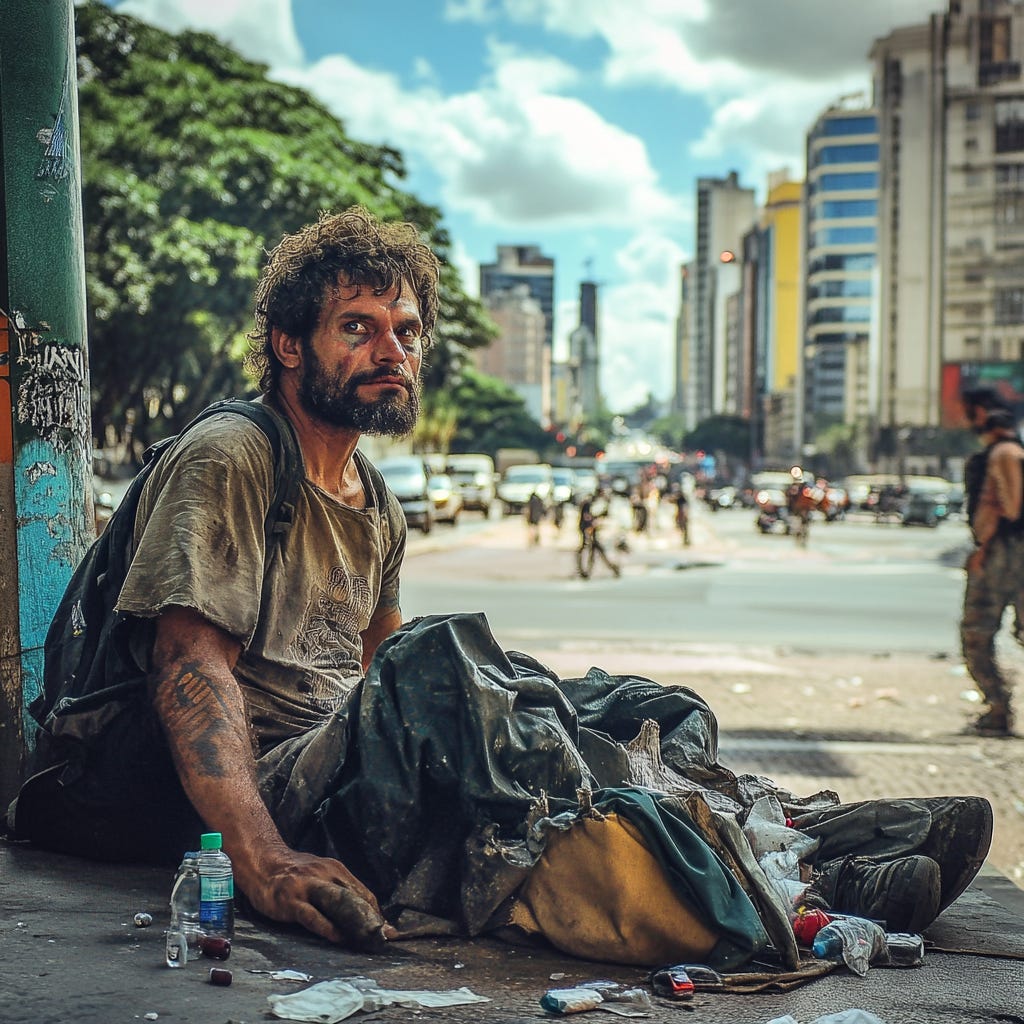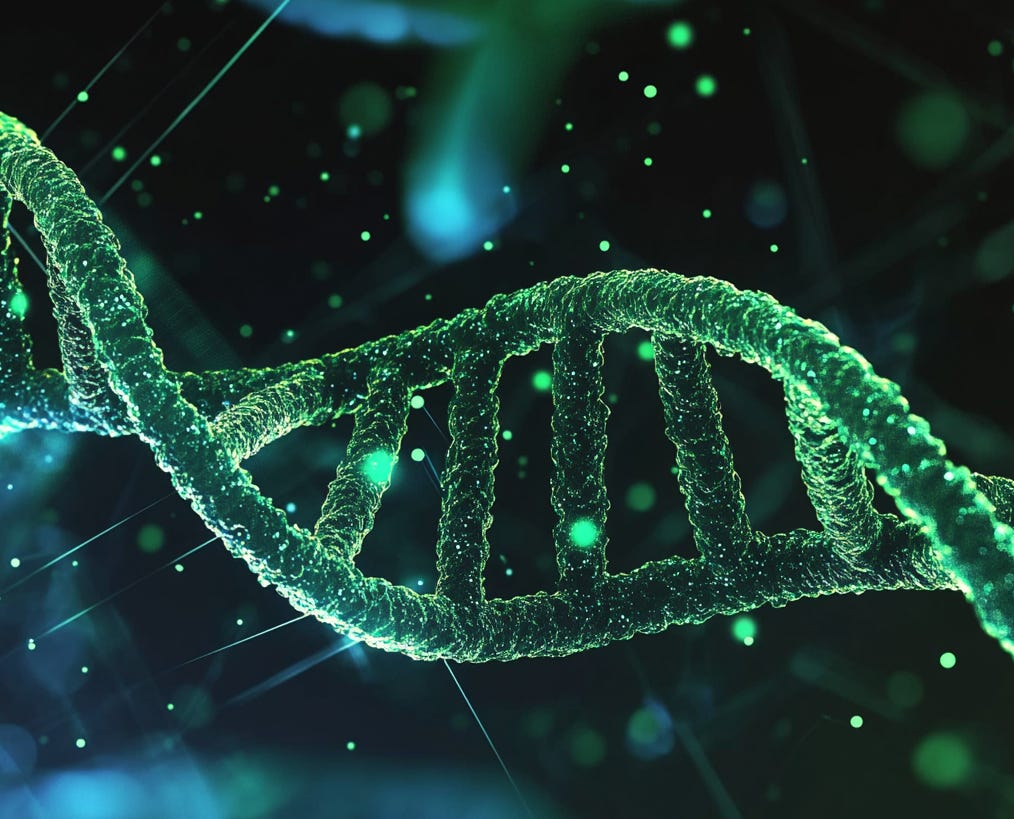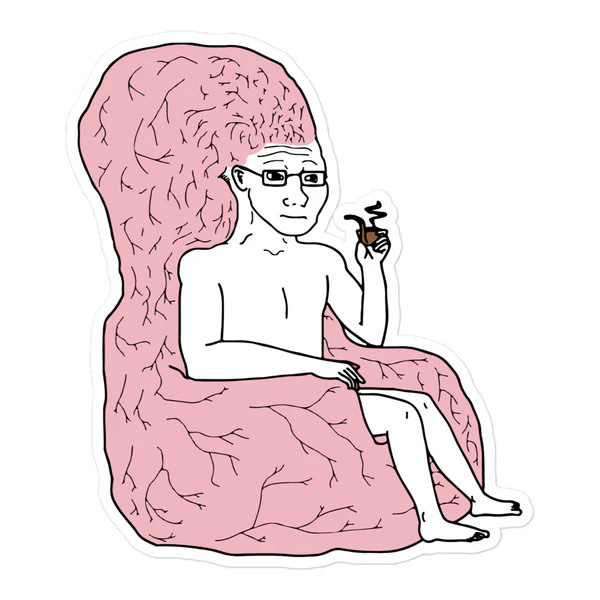You Don't Need To Be A Genius
How to build the Future
Building the future begins with secrets.
What do you know that no one else does?
If you want to change the world, you must discover something hidden.
But sadly most people believe all the great discoveries have already been made.
Our maps contain no blank spaces and if there were still secrets out there…
Wouldn't someone from the global pool of smarter people than you have found it already?
But the world is still full of secrets— if you're willing to look where others won't and bear the discomfort of being unpopular.
Secrets of Nature.
What frontier of science is just being discovered?
“Secrets of nature” mean you find some undiscovered aspect of the physical world.
Examples include the combustion engine, nuclear fusion, and Pennicilin.
Nature's secrets reveal themselves to those who understand their field deeply enough to invent the next big technical innovation.
Look to the Manhattan Project, where hundreds of physicists across the UK, Canada, and the United States worked to understand nuclear fission.
Predicting the next of nature’s secrets is hard unless you have deep technical skills.
Of course, AI models today are at the cutting edge of computer technology…
But material engineering also seems promising.
After all, who is creating new metal alloys and researching materials in depth today?
The next breakthrough may come from understanding materials we think we already know.
Secrets of People
What are people not allowed to talk about? What is forbidden or taboo?
Other opportunities aren’t technical puzzles— but social ones.
Opportunities that others are afraid to touch.
Consider the police.
The police are incredibly unpopular and even saying you "support the police" has become a statement that could get you "canceled" or invoke society's outrage.
While "Defund the Police" and "Abolish the Police" have dominated headlines recently, a massive opportunity is being overlooked: modernizing law enforcement through technology.
Software for body cameras and police software in general could build billion-dollar companies, increase police efficiency, and hold the police more accountable…
We have the technology today, but everyone avoids the space simply due to controversy.
Similarly, consider NGOs.
Society views these organizations as angels, and their mission statements are filled with noble goals like "helping the homeless" and "solving poverty."
But beneath this veneer lies an uncomfortable truth: many NGOs are simply government corruption in plain sight.
While some genuine organizations exist, many merely rent a few vans to distribute the occasional sandwiches and blankets— yet collect multi-million dollar government contracts.
Often run by politicians' family and friends, these organizations operate with minimal oversight.
Basic questions like "How many homeless people are in San Francisco?" or "How exactly does this NGO help?" remain unanswered.
Here is another opportunity: a software platform that brings transparency in this sector.
Every dollar spent, every service provided, and every person helped— all recorded in a centralized database.
Finally revealing what these "social" organizations actually accomplish with their millions in funding and who they truly help.
Secrets of Nature and People.
There is a third category…
Secrets in nature that people do not go looking for— because they are taboo.
What frontier of science is taboo?
Genetics is the perfect example.
After the Nazis' horrific abuse of genetic “science”, the field became both technically challenging and socially taboo— leading to the stagnation of the field for the last century.
“Frankenstein” has also been a horror story for centuries.
The reality is that genetic engineering could solve countless diseases and extend human life drastically.
But scientists are not working on "designer babies" because it's both hard and unpopular.
Similarly, genetic nutrition remains unexplored(“Nutrigenomics”).
While around 90% of East Asians are lactose intolerant, under 10% of Northern Europeans share this trait.
This isn't a flaw—it's evolution at work.
East Asians historically did not consume dairy, so they never developed the genetic mutations that emerged in European populations after thousands of years of dairy farming.
Yet even suggesting there could be minor genetic differences between ethnicities remains deeply taboo.
Just mention "genetic differences" and "ethnicity" in the same sentence, and you will face immediate backlash.
But this cultural sensitivity has blocked us from exploring legitimate scientific questions.
Humans evolved with genetic adaptations to local environments.
Just as Tibetans developed genetic mutations for high-altitude living, our bodies have evolved to process local diets over countless generations.
There’s an opportunity here to personalize nutrition based on genetic heritage.
This would transform human health—if you're brave enough to tackle both the science and the cultural sensitivity.
Don’t worry.
You don't need to be a genius.
Most people assume technical secrets are harder to discover than social ones.
But this is not true.
In today’s world, courage is in an even shorter supply than genius.
What you may lack in innate brilliance, you can compensate for with eccentricity.
The world is full of secrets, waiting to be uncovered.
But are you brave enough to seek them out?
This post was heavily inspired by Zero to One by Peter Thiel






